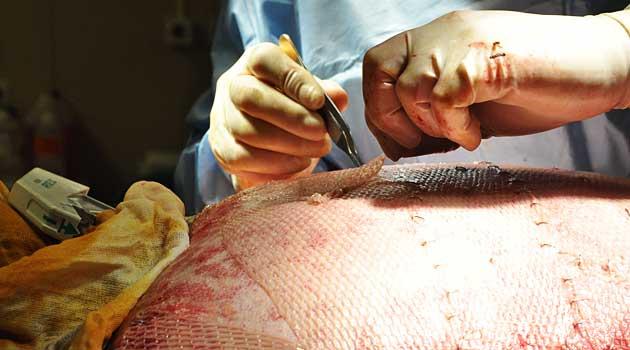In its latest issue, the prestigious British medical journal The Lancet warns about the dangers of “profiteering” in the $1 billion international trade on human tissue and the lack of sufficient regulation worldwide – echoing the findings of an International Consortium of Investigative Journalists series earlier this year.
The November 10 issue of The Lancet – one of the world’s leading medical journals — said that “profiteering threatens the altruism of tissue donation” and that doctors and health agencies in many nations have trouble tracing improperly-obtained bones, skin and tissue when problems occur.
The Lancet article highlighted case studies and major concerns contained in last July’s four-part ICIJ series, including the legal consequences of stolen tissue implanted in hundreds of patients because of convicted body-snatcher Michael Mastromarino, now in a New York prison.
The Lancet said the for-profit tissue industry “is not as tightly regulated as organ donation worldwide”. Voluntary donors — and many families who allowed the use of loved ones’ bodies after death — are not fully aware of the money-making uses of bones, tissue and skin for such things as cosmetic surgery and dental repairs, it said.
“When you introduce money into the process, then you increase the risk to quality and safety,” Imogen Swann, Director of Regulation at the United Kingdom’s Human Tissue Authority told the Lancet. “Donation should be about altruism.”
The Lancet also quoted Australian health bioethicist, Nicholas Tonti-Filippini, who recently chaired an advisory panel on tissue donation ethics for Australia’s National Health and Medical Research Council, calling for better regulation in his country. Tonti-Filippini’s comments were in reaction to a documentary produced in collaboration with the ICIJ and broadcast on Australian television – one of more than 100 media outlets that published or broadcast the ICIJ’s findings on the human tissue industry.

The Lancet also emphasized a central finding of the ICIJ’s report — that government agencies have little idea how much human tissue is imported, where it comes from or where it goes, and that standard tracking methods like bar-coding is often ignored. “Lack of traceability is a key issue with tissue donations worldwide, since tissue (especially tissue products) can end up in multiple recipients,” The Lancet warned.
The Lancet also examined the ongoing legal issues surrounding Mastromarino and the American tissue firm RTI Biologics based in Florida, which processes about 25 percent of all tissue recovered in the USA. Family survivors of the dead — whose bodies were cut up at funeral homes by Mastromarino’s firm without permission — filed an ongoing lawsuit claiming that RTI did not properly supervise the former dentist who became a supplier of tissue. In court papers, RTI has denied charges of any wrongdoing.
“The crime of Mastromarino (who was among those jailed) were made possible by the for-profit tissue processing industry that has exploded in the USA and worldwide,” wrote Tony Kirby, The Lancet’s author.
The Lancet’s two-page article is the latest reaction to the ICIJ’s investigative report prepared by 14 journalists from around the world since first published July 17.
In September, the Pentagon announced a new program to better oversee human cadaver tissue used in Defense Department hospitals around the world and that it is investigating allegations that some tissue-based medical implants provided to service members may have been obtained improperly. At the same time, Congressional investigators said they are looking into government contracts between the Department of Veterans Affairs and RTI Biologics.
Shortly after the ICIJ report, RTI Biologics “made a decision to voluntarily suspend import of tissues” provided in partnership with suppliers in Ukraine, where authorities have carried out multiple investigations over allegations of illegal tissue recovery.
In October, Ukrainian authorities said they will press criminal charges against a morgue official who is alleged to have illegally recovered human tissue from a corpse intended for the international market. Authorities said it was part of a wider probe looking at the use of bone, teeth and other body parts taken from 40 corpses in 2011 and early 2012.
![]() Subscribe to The ICIJ Global Muckraker by email or get the RSS feed
Subscribe to The ICIJ Global Muckraker by email or get the RSS feed
